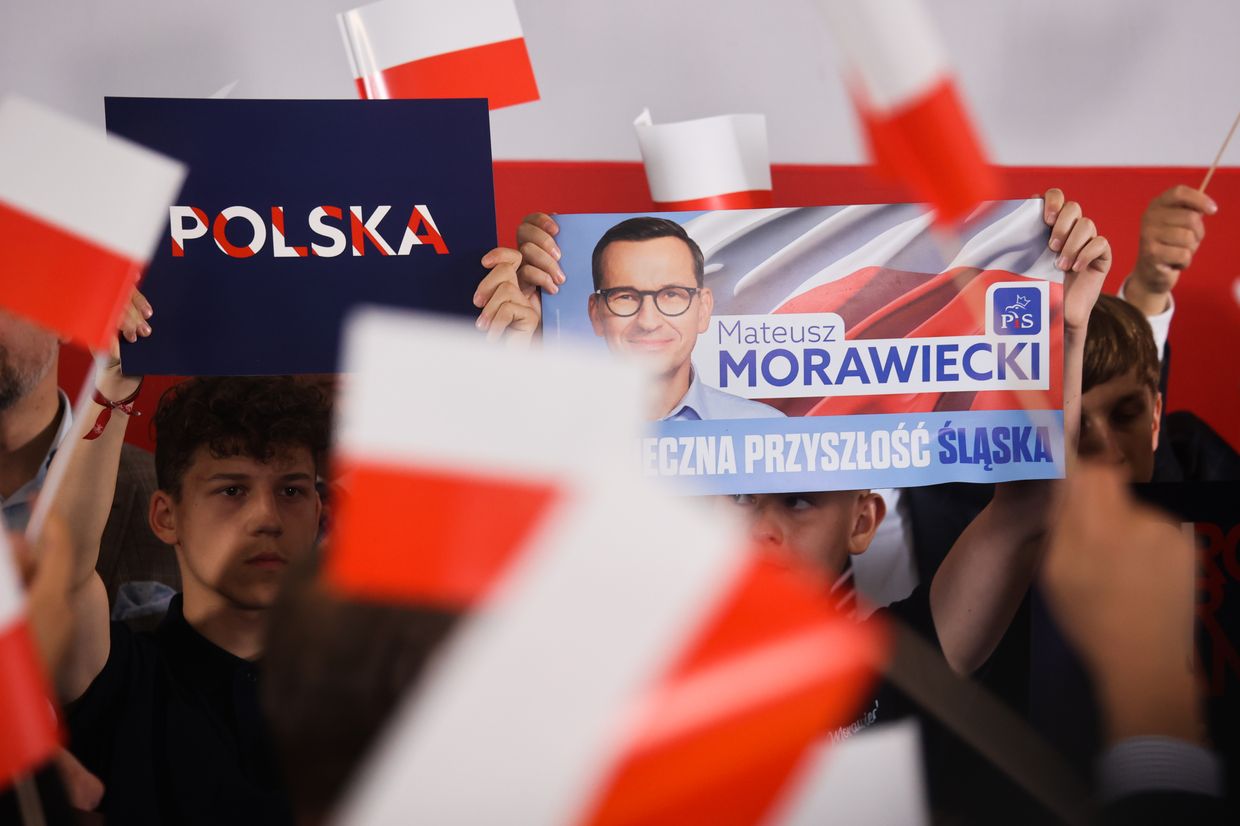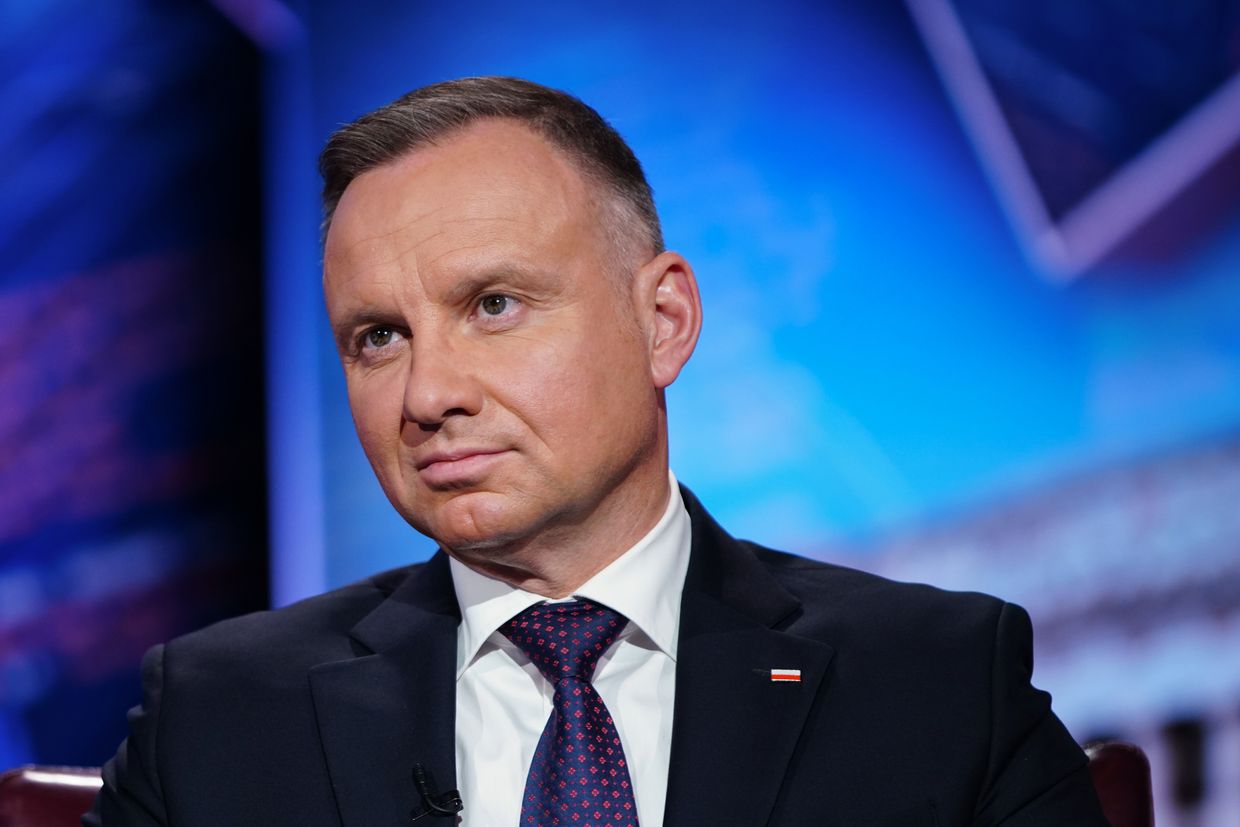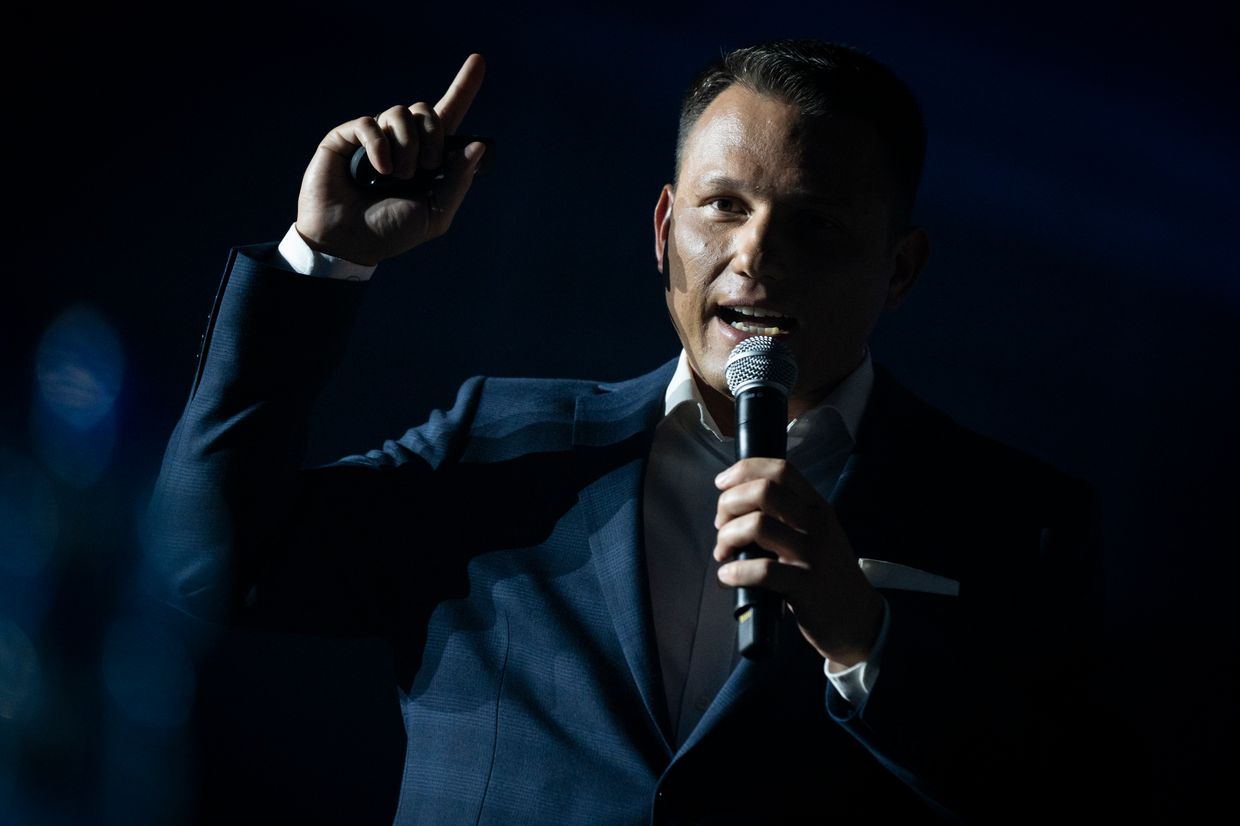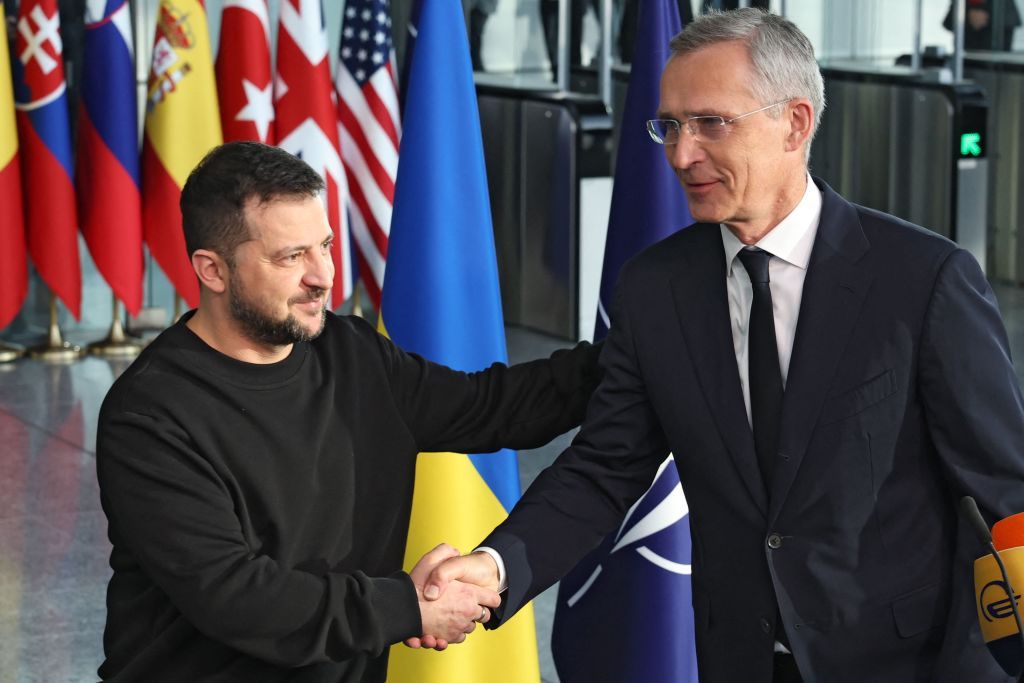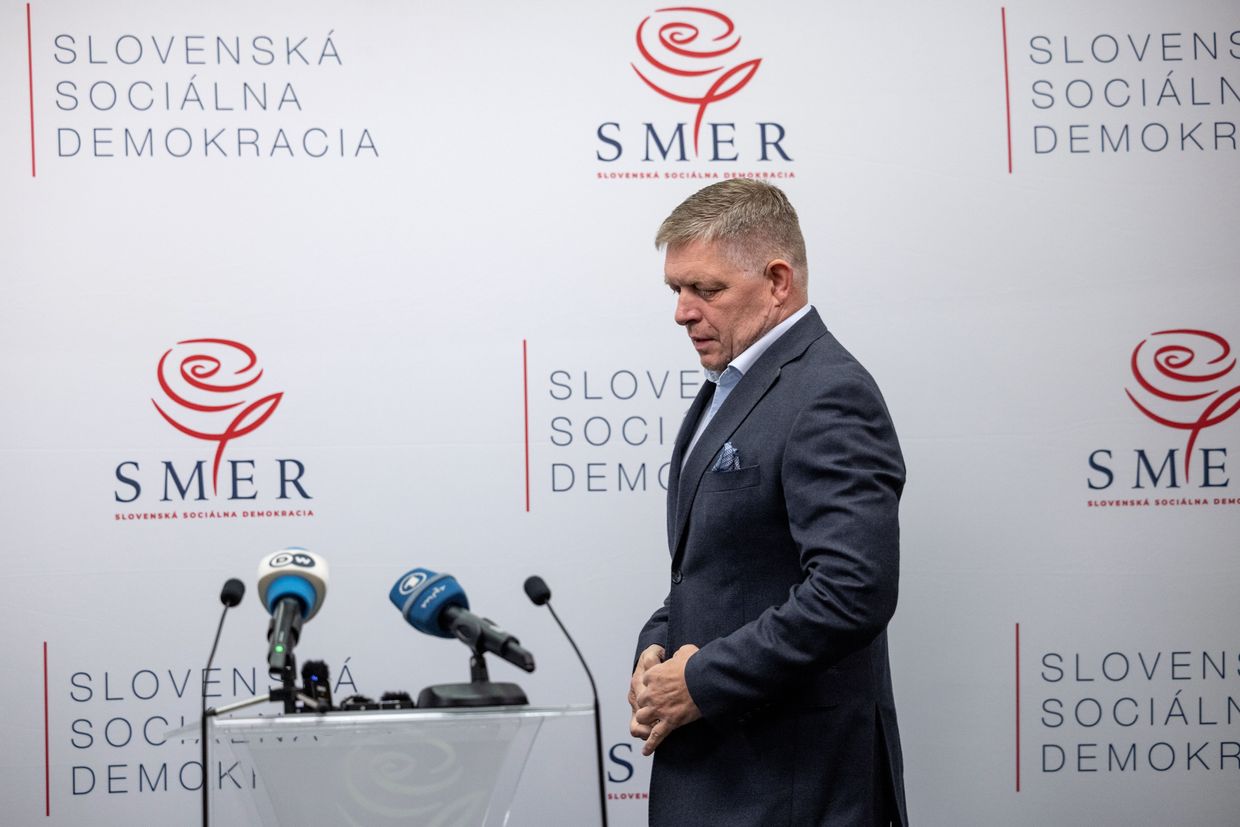Allies in discord: Roots of recent quarrel between Poland and Ukraine

Over the past year, allied nations Poland and Ukraine went from displays of enthusiastic support and gratitude to trading veiled accusations in the UN General Assembly.
When Russia launched a full-scale invasion, Poland took the initiative to provide weapons to Ukraine and called on others to do the same.
Poland's people and government hosted millions of Ukrainian refugees. At times, the relationship looked nigh-unbreakable, but a scandal over grain amplified by aggressive rhetoric exposed the rift between both countries.
A dozen experts and stakeholders from Poland and Ukraine interviewed by the Kyiv Independent believe Poland will continue to support Ukraine against Russia.
The stakes are too high to do otherwise.
However, the accusations have damaged trust so much that it's become dangerous for politicians from every party to be outspokenly pro-Ukrainian if they hope to have a shot in the Oct. 15 elections.
The indignation being worn by both sides was woven from many smaller misgivings.
Besides grain, experts also pointed to Ukraine's aggressive rhetorical style, allegedly unscrupulous Ukrainian grain traders, Poland's ruling party and its right-wing challengers, purported election month pandering, Brussels' decisions, Warsaw's rivals in Berlin, and the challenging past shared by Ukraine and Poland that still haunts the two countries.
What happened?
Like many things, it started with Russia. The full-scale invasion blockaded the Black Sea, which Ukraine used to export 98% of its grain.
From July 2022, a negotiated corridor let some ships through until Russia pulled out a year later, just when the quarrel between Ukraine and Poland was heating up.
In 2022, the EU opened solidarity lanes that allow the tax-free import and transit of Ukrainian grain. But instead of going to the Baltic ports and overseas, a lot of grain was sold in Ukraine-adjacent countries, Poland included.
Early in 2023, a number of Ukrainian neighbors, including Poland, requested a ban on cheap Ukrainian grain being sold inside their markets, influencing the supply and pricing.
The EU adopted the ban in the spring of 2023 but lifted it in mid-September to a burst of renewed controversy. Deal negotiations are ongoing.
But the most visible part of the scandal began with the back-and-forth comments by Ukrainian and Polish officials in September.
This reached a fever pitch at the UN General Assembly in New York, where Polish President Andrzej Duda likened Ukraine to a flailing, drowning man and said Poland needs to take care that it doesn't also drown mid-rescue.
President Volodymyr Zelensky appeared to imply that Poland was play-acting and treating Ukraine as would a tacit ally of Russia.
Polish Prime Minister Mateusz Morawiecki then told a Polish interviewer that Poland is not transferring weapons to Ukraine, rearming itself instead. It was clarified that he meant there'd be no new weapons at this time and not no weapons ever again, but many people around the world had taken it to mean the latter.
Glut of grain
After the solidarity lanes opened, the Polish farmers were fuming. The country doesn't normally buy Ukrainian cereals, and imports increased 600-fold, said Daniel Szeligowski, an economist at the Warsaw School of Economics.
"Ukrainian grain exports have disrupted local markets," Centre for European Studies expert Tadeusz Iwanski said. "For some Polish farmers, their work is much less profitable due to the inflow of cheaper, duty-free production from Ukraine. This is a real problem. And the authorities in Kyiv seem to not want to notice it."
Some Polish experts are suspicious of Ukraine's larger agricultural corporations or traders that are richer and more economically resilient than Poland's smallholders.
At least 75% of Ukraine's farmers are actually small and medium entities. But Ukraine's top 14 wheat exporters also had 85% of the market in 2021.
Denys Marchuk, deputy chief of Ukraine Agrarian Council, which represents small and medium farmers, disputed Poland's version. He said the majority of exports passed through Europe — the amounts sold in Europe wouldn't be enough for such a dramatic price shift.
The Kyiv School of Economics reported that grain prices in Europe actually went up during this period. Polish farmers sell most of their crops inside Europe.
"Two interesting conclusions jump out from the price graph," KSE agriculture expert Oleg Nivievskyi wrote about these figures. "The first is that Polish farmers are getting almost double their income. Everyone knows why. We're at war, logistics are expensive, there are risks and limited export opportunities."
The grain situation was Poland's unpleasant reckoning with how Ukraine can come to be a competitor, not just an ally.
Bitter rhetoric
The snarky public statements by the Ukrainian officials certainly didn't help.
Prime Minister Denys Shmyhal said Poland blocking grain exports is "an unfriendly and populist step."
But it was nothing compared to when Deputy Economy Minister Taras Kachka used a modified historical slogan of Polish and Ukrainian solidarity to suggest that he was defending the interests of farmers from both countries. This slogan is widely revered in Poland and caused immediate outrage, multiple experts told the Kyiv Independent.
Ukraine's threats to sue Poland and several other neighbors at the World Trade Organization, and ban some Polish produce didn't warm any hearts either. Neither did Warsaw's counter-threat to expand the list of banned items.
"The ship is full speed in one direction," and that is not towards rapprochement, said Slawomir Debski, a political scientist with the Polish Institute of International Affairs. "This ship could have been stopped maybe in July but we missed this moment."
But Daniel Tilles, editor-in-chief of Notes from Poland isn’t sure this tension will derail a very strong relationship.
"I feel that once the elections are over, some kind of agreement will be reached," he said. "A regular tactic by the Ukrainian government during the war has been to anger allies by saying they're not doing enough, which provokes anger, but it often leads to some kind of negotiations and support."
Role of elections
One thing Poles agree on is that the country is politically divided, with a closer race than usual.
The ruling party, Law and Justice, hopes to hang onto its seats. It's opposed by the more leftist Civic Coalition. Meanwhile, the far right, Ukraine-skeptic party Confederation, is enjoying a run of popularity.
Confederation is fighting Law and Justice for some of the same votes and has the potential to be a force to be reckoned with. The ruling party doesn't want the right-wingers in the coalition and needs to send the message that it will defend Polish interests.
Paulina Siegien, a journalist with the liberal activist network Krytyka Polityczna, said the government in power could have offered to do any number of things to help its farmers.
Instead, they are exploiting the anger in an attempt to stay in power.
Szeligowski thinks it's the other way around — the ruling party has been put on the defensive, with nothing to gain and votes to lose from the situation.
In light of all this, Ukraine's rhetoric is especially puzzling — Zelensky should have known how his remarks would play out in an election year, Iwanski said. But Siegien suggested that Ukraine may be paying attention to what she described as Poland's slide to the right and the likelihood of a more hostile government.
Tilles said it's possible Ukraine is thinking about the election outcome and how long support may continue with a conservative and a farther-right party in power.
Public emotions
Public sentiment matters more than policy though — the government is still chasing the emotions of the public, Debski said.
Last year's emotions were a show of unbridled support. This year revealed that things may be a little more textured.
Debski pointed out that the specter of history often hovers in the background of Ukraine-Poland relations. The Volyn Massacre by the Ukrainian Insurgent Army is always being talked about somewhere. There are always people pushing for things like the exhumation of bodies and recognition in the form of a monument. Kyiv hasn't done it yet.
Besides people with a genuine stake in the issue, the topic has been raised by some politicians, including from the ruling party, to score points.
As Russia invaded, these voices were drowned out by the rising tide of support for Ukraine. Polish people came out in droves to help refugees, put them up in their homes, and agree to a tax-funded assistance program. Many who helped refugees are from Eastern Poland and more likely to have been affected by the massacres of the 1940s.
Now, those voices are coming back, and more people are paying attention. Debski said that a quiet majority of the population still supports Ukraine and understands how these scandals came to be. But last year's momentum of effusive support was never going to be self-sustaining.
Siegien said that the trend of waning enthusiasm isn't huge but is very important. She said some taxpayers don't want to pay for refugee stipends, and there are rumors about Ukrainians going around.
Tilles was more positive: "I think recent polling has shown that society still remains sympathetic towards and supportive of Ukraine… Ukrainians contribute, integrate well, have jobs. But the social subsidy is a point of friction for some."
Looking West
There may be another friction point affecting Warsaw’s relations with Kyiv — its rivalry with Berlin over the future of the EU, historian and political scientist Lukasz Adamski suggested.
Poland and Germany are at odds about how to run the union. Germany wants to reform into a more federal system. Poland is blocking this reform, seeing it a power grab by Berlin.
Warsaw says it wants to defend the primacy of the nation-state.
As a result, Germany may be trying to court Ukraine away from Poland, Adamski said. If Berlin could become Kyiv's primary ally and protector and guarantee its entry into the EU, it may hope to call on Ukraine to support its position. At the UN, Zelensky gave Poland the cold shoulder and called for Germany to become a permanent Security Council member.
That would be seen in Poland as a betrayal.
Poland was arming Ukraine and trying to give it tanks and fighter jets when Germany was still sitting on the fence. Germany almost gave the green light to Nord Stream 2, giving Russia massive influence over Europe's energy.
If Poland were to introduce Ukraine into the EU instead, they might have a potent ally.
This version of events is a possibility, not a certainty, according to Adamski and other experts. Tilles said it is also possible that Ukraine could be trying to decide whether Poland or Germany is a more stable ally in the long run.
However, staying close-knit with Poland comes with conditions of its own, Siegien said. After everything Poland's done for Ukraine, Warsaw might call on Kyiv to consider its interests.
"If this political course continues, Kyiv might be forced to make a choice," she said. "Is Poland going to be the country that helps it integrate into the West or become an obstacle unless some conditions are met?"


